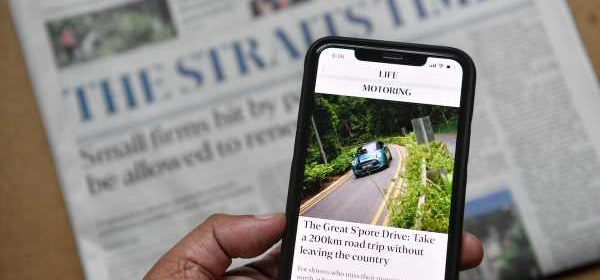Will business travel be the same again?

(REUTERS) – The unprecedented halt to air travel during the Covid-19 pandemic cut planet-warming emissions, saved companies billions of dollars in tickets, and benefited staff who can lose weeks of their lives on planes.
As global travel picks up following vaccine roll-outs, some companies are reassessing how much flying their employees really need – and the answer is not nearly as much as they thought.
The World Resources Institute (WRI), an environmental think-tank, said last year’s switch to virtual working should spur firms to slash their business travel to help the world meet climate targets.
Aviation is a major contributor to climate change, with the carbon dioxide (CO2) emissions it produces contributing 2.5 per cent of total global CO2 emissions, and set to triple between 2015 and 2050.
“If air travel were in 2018 a country, it would be the sixth largest (CO2) emitter in the world,” said WRI behavioural scientist Mindy Hernandez.
Deloitte’s sustainability leader Kathy Alsegaf said: “It’s not an easy sector to decarbonise. We’re not going to innovate our way out of this. It’s up to us to change our behaviour.” She added that there had been “a seismic shift” in attitudes at her company.
“Before the pandemic, there was a deep-held belief that if we reduced travel it would impact our business at a very large scale. Last year’s grand experiment put a stake through the heart of that idea,” she said.
The pandemic has shown that virtual meetings can replace a lot of travel and are often more inclusive. For example, women with young children, disabled people and delegates from small companies and developing countries may be less able to travel for meetings.
While virtual conferences cannot help build relationships in person, innovators are creating new tools to help users join discussions in a similar way to real life.
Platforms such as SpatialChat, Gather and Teamflow let people move their avatars through rooms to network, with some even enabling users to hear conversations fade in or out as they move nearer or further from a group.
Ms Hernandez said reducing air travel had saved companies money and boosted staff well-being. Amazon alone estimated it had saved US$1 billion (S$1.35 billion) in travel costs during the pandemic.
Studies have linked frequent business travel to strokes, heart attacks, deep vein thrombosis and poor diet and sleep.
She said wealthier countries had a responsibility to cut flights as they account for more than 90 per cent of aviation emissions, adding that studies estimate that eight in 10 people in the world have never been on a plane.
To see whether the pandemic had changed people’s attitudes to business travel, the WRI surveyed its own staff, a quarter of whom averaged a whopping 26.5 work days on planes in 2019.
Conferences and workshops were the most common reason for business flights. But most staff said the pandemic had shown them that virtual meetings were more feasible and effective than they had thought. Virtual formats often worked well for conferences, speaking engagements and project management, but were seen as less suited to fund-raising, relationship building and data collection.
Making it normal not to fly is crucial for changing behaviour, Ms Hernandez said.
Prior to Covid-19, less than one-third of WRI staff thought their boss would support a reduction in work trips, compared with nearly two-thirds now.
But Ms Magdalena Heuwieser, co-founder of Stay Grounded, a global network promoting alternatives to aviation, said relying on businesses to change their behaviour was not the solution. She called for stricter regulation and heavier taxation of the aviation sector, the abolition of frequent flier programmes used by businesses, and levies on frequent fliers.
Deloitte’s Ms Alsegaf agreed that flying and air miles were seen as a popular perk, and suggested companies could look at incentives for frequent “virtual” travel.
Join ST’s Telegram channel here and get the latest breaking news delivered to you.
Source: Read Full Article
